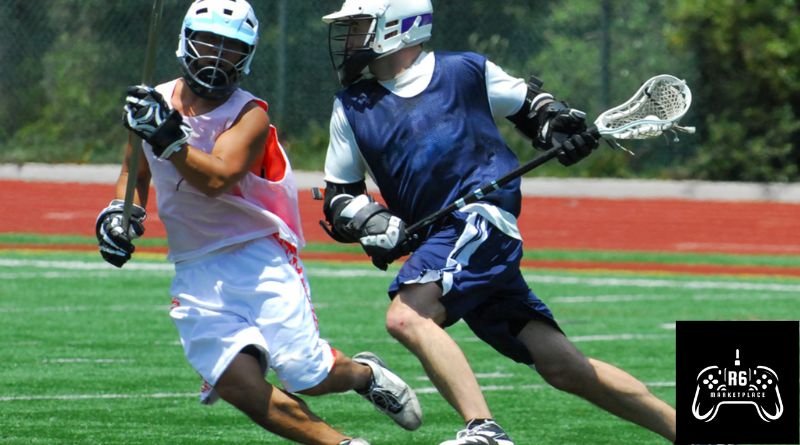As an athletic director, the preparation for competition season is one of the most critical aspects of your job. The demands of managing athletes, coaches, and resources while ensuring that every event runs smoothly can be overwhelming without the right strategies in place. From organizing teams to managing schedules and ensuring facilities are ready, prepping for competition season requires careful planning and a proactive mindset. Here are five essential strategies that will help athletic directors like you navigate the season with confidence and success.
1. Plan and Organize Your Schedules Early
When it comes to prepping for competition season, one of the most vital tasks for any athletic director is setting up and organizing schedules well in advance. Planning the season early not only ensures that there are no conflicts but also gives enough time to make necessary adjustments should issues arise.
Start by communicating with coaches about their needs, preferences, and any specific scheduling requests they may have. This includes game times, practice slots, and travel schedules. Additionally, coordinate with opposing schools, leagues, or athletic organizations to finalize competition dates. The more you plan ahead, the less likely you’ll experience scheduling headaches later on.
As the season progresses, remain flexible, as unexpected conflicts can emerge. Have a backup plan for weather delays, team injuries, or other unforeseen circumstances. Investing time early in creating a comprehensive and adaptable schedule will save a lot of time and frustration later.
2. Communicate Effectively with Coaches and Staff
Clear communication is one of the most important aspects of preparing for competition season. As an athletic director, you need to be in constant touch with your coaches and staff to ensure that everyone is on the same page. Communication should be open, frequent, and proactive.
Make sure your coaches understand their responsibilities, from training schedules and athlete well-being to managing behavior on and off the field. Discuss your expectations for how to handle challenges, such as disciplinary issues or injury management. Additionally, keep coaches informed about any administrative updates, changes in facilities, or scheduling shifts.
Create channels for regular updates, whether through emails, meetings, or group chats, so that no vital information is overlooked. By ensuring that every coach and staff member is informed, the entire athletic department can work as a cohesive unit, eliminating confusion and potential missteps.
3. Ensure Proper Training and Support for Athletes
Prepping for competition season also means ensuring your athletes are physically and mentally ready for the challenges that lie ahead. As an athletic director, it’s your responsibility to make sure that athletes receive the proper training, support, and resources to excel.
This includes not only regular practices but also the necessary equipment, facilities, and medical support. Work closely with your coaches to monitor the progress of your athletes and ensure they’re following safe, effective training routines. Provide access to strength and conditioning programs, and where possible, sports psychologists to help athletes improve their mental toughness and focus.
Additionally, ensure that medical professionals are available during practices and competitions. Having athletic trainers and medical staff on hand is crucial for handling injuries promptly and minimizing the risk of more serious conditions. Make sure your athletes are also educated on injury prevention techniques, including stretching, hydration, and proper nutrition.
4. Prepare Your Facilities and Equipment
Another key element of prepping for competition season is ensuring that your facilities and equipment are in optimal condition. This is essential not only for the safety of athletes but also to ensure that competitions run smoothly.
Start by inspecting all sports facilities, including fields, courts, gyms, and locker rooms. Ensure that they are clean, well-maintained, and meet safety standards. Check for any necessary repairs, whether it’s fixing damaged bleachers, resurfacing a track, or upgrading gym equipment. Addressing these issues before the season begins will help you avoid disruptions during competition.
Similarly, review the status of all sporting equipment, from balls to uniforms and protective gear. Replace any outdated or worn-out gear, ensuring athletes have access to the highest quality equipment for performance and safety. It’s also a good idea to create an inventory list to monitor the usage of equipment throughout the season.
5. Manage Budgets and Resources Effectively
A significant aspect of prepping for competition season involves ensuring that your budget and resources are properly allocated. As an athletic director, you’ll need to make tough decisions about how to spend funds efficiently, whether it’s for travel expenses, uniforms, or facility upgrades.
Start by reviewing your department’s budget and identifying areas where you may need to cut costs or find additional funding. For example, explore sponsorships, fundraisers, or partnerships with local businesses that can help offset the costs of equipment and travel. Having a clear understanding of your budget allows you to make informed decisions when allocating resources to teams, coaches, and athletes.
Additionally, keep track of your expenditures and monitor the financial health of your department throughout the season. By managing your budget effectively, you can ensure that all teams have the resources they need to succeed and that the competition season is as smooth as possible.
Conclusion
Prepping for competition season as an athletic director is no small task, but with the right planning and organization, it can be a rewarding and successful experience. By organizing schedules early, communicating effectively with coaches and staff, ensuring athletes are properly trained, preparing your facilities, and managing budgets wisely, you can ensure that your department is ready to face the challenges of the competition season. Remember, thorough preparation and proactive management can make all the difference in setting your teams up for success.
Through careful planning and a strong leadership approach, you’ll not only keep things running smoothly but also create an environment that promotes excellence and achievement for all those involved.
May Also Read: r6marketplace

